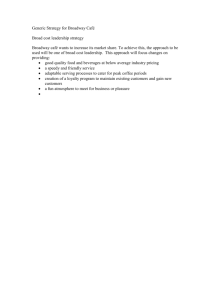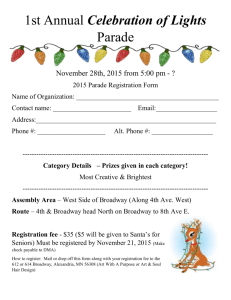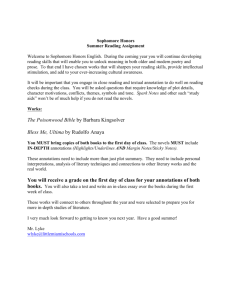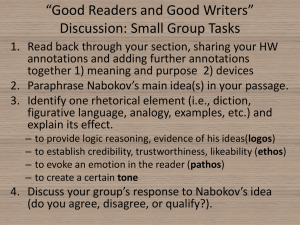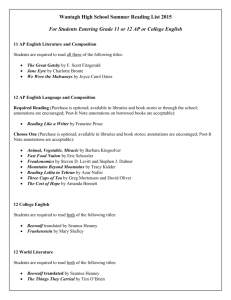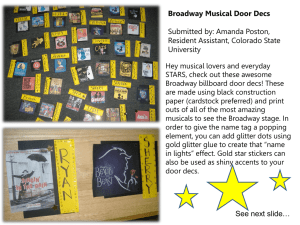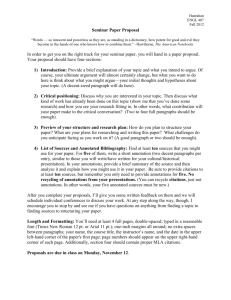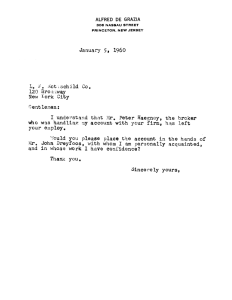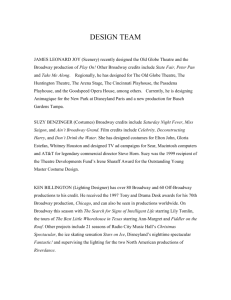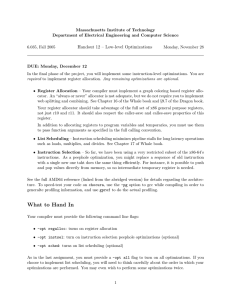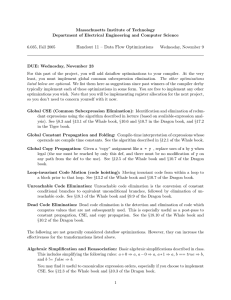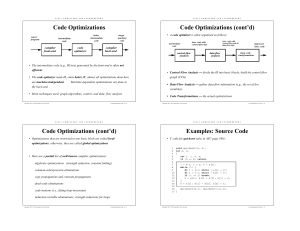Slides in ppt
advertisement
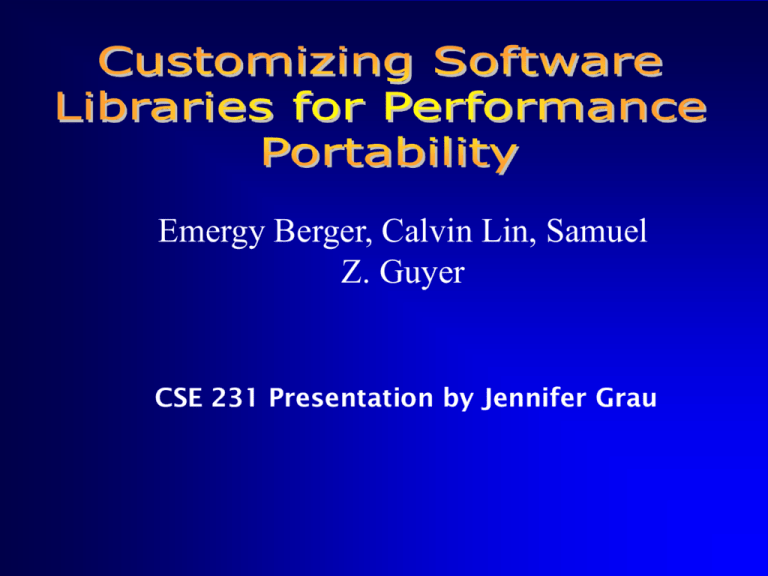
Emergy Berger, Calvin Lin, Samuel
Z. Guyer
CSE 231 Presentation by Jennifer Grau
The Problem
• Software libraries typically designed to be
generalized for reuse in many situations
• Why a problem?
– This generality represents a performance
penalty
• Goal: to improve performance portability
via specialization and dynamic feedback
The Broadway Compiler
• Uses annotations to describe the library but
not the application
• Handles existing libraries by separating the
library source from the annotations
• Using PLAPACK parallel dense linear
algebra library
– 1st algorithm: 10% for large to 180% for small
– 2nd algorithm: 36% for large to 662% for small
What’s Going On?
• Annotations provide mechanism for
describing library-specific analysis &
abstractions
• PLAPACK manipulates matrices via view
objects
• Annotations declare matrices to be general,
local, or empty
• Broadway performs dataflow analysis
Extending Broadway for
Performance Portability
• Broadway doesn’t support optimizations
which depend on interactions between the
application and target machine
– May require run-time information
• The tradeoff between sequential and parallel
computation may change dynamically as the
amount of work often varies as the
algorithm progresses
Proposed Solution
• Dynamic Feedback
– Wish to use dynamic sampling to determine which
optimization is the best
• Modify annotation language to support keyword
select to indicate there are multiple optimizations
possible
– Provides information to limit when select is run
select every 20 {
/* list of possible optimizations */
}
Discussion
• How might the overhead of dynamic
sampling affect the actual benefit of the
optimization?
• Will they need to limit how many possible
optimizations that may be listed in a given
select?
• What might be some other disadvantages of
dynamic sampling?
